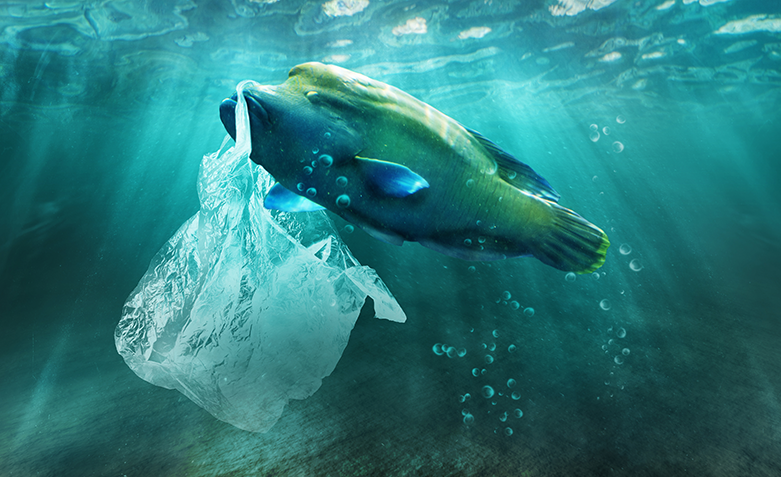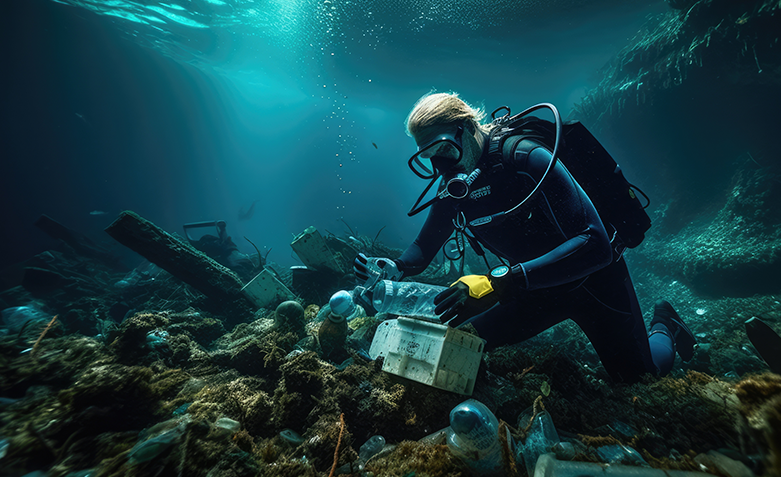
The Importance of Fundraising for Marine Life Conservation
Our oceans are crucial to the health of our planet. The oceans feed us, they regulate the Earth’s climate and they produce most of the oxygen we breathe. They also play a vital foundational role in the global economy.
But our oceans are under greater threat than at any point in human history. Climate change, pollution, overfishing, habitat destruction, and ocean mining and exploitation are degrading marine ecosystems and driving ever higher rates of biodiversity loss and extinction.
Fundraising to support marine conservation has never been more important, but marine conservation charities face a number of challenges, including:
- Limited public awareness and understanding – compared to terrestrial conservation, marine ecosystems can feel more distant and more abstract. Ocean threats and the need for fundraising can feel less pressing for marine ecosystems.
- Limited resources and funding – due to the substantial costs associated with conducting research and conservation in what are often distant and challenging locations, marine conservation can be costly. Securing enough long-term financial support can be challenging.
- Difficulties in measuring impact – showing the impact of conservation is an effective step to take in fundraising, but quantifying the impact of marine conservation can be difficult and complex. Demonstrating the effectiveness of conservation initiatives to potential donors can be hard.
Despite the challenges faced by marine conservation charities, securing long-term financing from fundraising is possible. Particularly through embracing online fundraising approaches and online platforms, like easyfundraising.
Effective Fundraising Strategies for Marine Life Conservation

Events, both online and off, are still important and useful occasions for raising awareness and donations for conservation. For marine conservation, consider:
Beach Clean-Up Fundraising Events
Beach clean-ups can be popular and effective fundraising events. Removing litter and debris from beaches can produce a visible and impactful result in a much-valued setting. They can be community-driven events too, that involve interested individuals, businesses, and other community groups. Beach clean-ups can be an occasion to introduce a range of audiences to your charity and your conservation work.
To organise a successful beach clean-up event, try to:
- Identify a suitable beach and obtain the necessary permissions or permits for a volunteering event.
- Determine the date, time, and duration of the beach clean-up, considering tides, weather conditions, and participant availability.
- Recruit volunteers by promoting the event through social media, local community groups, and schools.
- Conduct the necessary health and safety audits and provide safety instructions and guidelines to participants.
- Organise waste collection and disposal methods, ensuring that recyclable items are separated properly.
- Offer educational materials or presentations on marine conservation and your organisation’s work.
- Seek sponsorship or donations of supplies, refreshments, or promotional materials from local businesses.
- Share the outcomes of the clean-up event, including the amount and types of litter collected, through social media, local news outlets, or community newsletters. And express your thanks to all the volunteers who attended.
Sponsored Swims and Dives
Sponsored swim and dive events can offer many of the benefits of a beach clean-up, but can also offer volunteers a chance to experience the sea too. An event like this can also be made into popular annual or seasonal events that attract audiences outside of those volunteering, and can become valuable occasions to raise awareness about your organisation.
Crucial to making sponsored swims or dives effective, is ensuring they’re conducted safely. Make sure your organisation conducts a thorough risk-assessment and has the right staff on hand to provide assistance. This should include trained lifeguards, experienced divers, and first-aid providers.
Online Webinars on Marine Life Conservation
A lot of people are fascinated by nature and wildlife. And marine life, which is usually hidden from view, can be particularly fascinating. Talks on marine species from experts can be particularly appealing, whilst webinars can open up these talks to wide audiences, making them an excellent opportunity to raise awareness and donations for your organisation’s work.
To host successful webinars, choose relevant and appealing marine conservation topics, invite expert speakers, promote the events through various channels, and provide links to a platform for online donations.
Online Fundraising Techniques for Marine Life Conservation

Digital fundraising platforms and social media can dramatically enhance the reach of your organisation and provide your supporters with a range of ways to donate to you.
Crowdfunding Campaigns
Crowdfunding involves raising money from large numbers of people who each contribute relatively small amounts, usually online.
Crowdfunding campaigns typically use a dedicated crowdfunding site to collect donations, like GoFundMe, Indiegogo, or Patreon. You can create an account or a page on that site, add text and media, plus links to your organisation’s website and social media.
To create a successful crowdfunding campaign:
- Choose a reputable crowdfunding site that you’re confident with using.
- Develop a compelling story on the site. It should be one that resonates with potential donors. You should share success stories and the impact of your organisation’s work and detail the positive impact that donations can make.
- Use engaging visual content, like high-quality photos, videos, and infographics to visually communicate your campaign’s message. Show the beauty and unique nature of marine life, the challenges it faces, and the importance of conservation.
- Offer attractive membership rewards based on contribution level. This could include merchandise, acknowledgment in project reports, or even unique experiences like field visits or volunteer opportunities.
- Promote your crowdfunding across social media platforms, with email newsletters, and across personal networks to amplify your campaign’s reach.
Social Media Fundraising
Social media has immense potential for promoting marine conservation and driving donations. With the effective use of social media, you can reach wide audiences with engaging content, spread the message about your organisation’s work and secure funding.
To use social media effectively, aim to:
- Use social media platforms that are relevant to your audience.
- Create engaging content that tells stories – about the challenges your organisation is tackling and how you’re overcoming them.
- Use visually striking images, video, and infographics.
- Focus on charismatic species and interesting habitats, where possible.
- Include links to online donation platforms.
- Engage with the wider community and relevant influencers, to receive support and to ensure social media posts are re-shared.
- Use data analysis and analytics to refine and improve the effectiveness of your social media endeavours.
How to use easyfundraising to Raise Money for your Marine Conservation Charity
easyfundraising is an online donation platform that allows your supporters to raise money for your organisation with their everyday online shopping. After your supporters sign up with easyfundraising, they can shop online with over 7,500 retailers via our website or app. Those retailers will then donate a portion of what they’ve spent to your cause, without it costing them anything extra. easyfundraising is an easy-to-use, cost-effective way for your supporters to donate regular funds to you.
To get started, register your organisation with us as one of our charitable causes. Once you do, we’ll provide you with a selection of tools to help you promote easyfundraising as a way for your supporters to donate to you. These include pre-written emails, social media templates, and WhatsApp messages.
Building Community Support for Marine Life Conservation
Businesses and local community groups can offer support and significant resources for your conservation organisation. Community involvement can also ensure that conservation efforts are aligned with local needs and that you can help foster understanding and a sense of urgency about marine conservation.
Partnerships with Local Businesses and Marine Organisations
Partnering with local businesses can grant your organisation access to valuable resources, including finance and important skills and capabilities. Business partnerships can include sponsorship opportunities, pro-bono services from businesses, joint merchandise ranges, and employee engagement and volunteer programs.
Key to making business partnerships effective is offering businesses collaboration projects they value, like prominent advertising, opportunities to raise awareness of their products and services, and positive public relations exposure.
School and Youth Group Involvement
Engaging young people in environmental causes can open their eyes to the need for conservation and can engender a sense of responsibility and enthusiasm for marine conservation.
By participating in fundraising initiatives, students can develop a deeper understanding of the importance of marine conservation and the impact they can make. Students can also actively participate in organising fundraising initiatives, spreading the message within their communities, and inspiring others to take action.
The future of Fundraising for Marine Life Conservation
The threats facing our oceans are intensifying, and marine conservation will become more important than ever in the coming decades. Effective fundraising will be vital to ensure marine conservation efforts can protect habitats and species and tackle biodiversity loss and ecosystem degradation.
You can secure funds for your marine conservation organisation by running successful fundraising events. But you should also embrace digital fundraising opportunities, including promoting easyfundraising with your supporters. Don’t forget also to build relationships with local businesses and other community groups.
By dedicating resources to fundraising and developing long-term fundraising plans, your organisation can secure the funds needed to continue your marine conservation work and contribute to protecting the world’s oceans.
